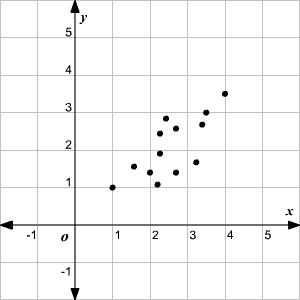
There is no statistical or probabilistic definition of causality. Why The Difference Matters.

The first one is the Pearson.
Define causation in statistics. Causation indicates a relationship between two events where one event is affected by the other. In statistics when the value of one event or variable increases or. How can causation be established.
Causality is the area of statistics that is commonly misunderstood and misused by people in the mistaken belief that because the data shows a correlation that there is necessarily an underlying causal relationship The use of a controlled study is the most effective way of establishing causality between variables. In a controlled study the sample or. Causation or causality is the capacity of one variable to influence another.
The first variable may bring the second into existence or may cause the incidence of the second variable to fluctuate. Causation is often confused with correlation which indicates the extent to which two variables tend to increase or decrease in parallel. Causation is also known as causality.
Firstly causation means that two events appear at the same time or one after the other. And secondly it means these two variables not only appear together the existence of one causes the other to manifest. Causation means that one event causes another event to occur.
Causation can only be determined from an appropriately designed experiment. In such experiments similar groups receive different treatments and the outcomes of each group are studied. Definition Causality We will speak of causality if there is an interdependence of cause and effect between two variables.
Correlation can indicate causal relationships. A person who is a heavy. In statistics two correlation coefficients are calculated.
The first one is the Pearson. In predictive problems we can define β by the expression of β xEYdox but it is incorrect to define β in the same way for casual. Association causation and Granger causation.
Correlation is a statistical measure of relationship between. Causation indicates that one event is the result of the occurrence of the other event. There is a causal relationship between the two events.
Read more elaboration about it is given here. Consequently what is the difference between association and causation. Causation indicates that one event is that the results of the occurrence of the opposite event.
Theres a causal relationship between the 2 events. Causation is an essential concept in the practice of epidemiology. Causal claims like smoking causes cancer or human papilloma virus causes cervical cancer have long been a standard part of the epidemiology literature.
But despite much discussion of causes it is not clear that epidemiologists are referring to a single shared concept. Causation is also known as causality. Firstly causation means that two events appear at the same time or one after theother.
And secondly it means these two variables not only appear together the existence ofone causes the other to manifest. Why The Difference Matters. A causal relation between two events exists if the occurrence of the first causes the other.
The first event is called the cause and the second event is called the effect. A correlation between two variables does not imply causation. On the other hand if there is a causal.
Causality is not a statistical or probabilistic concept at all at least as those topics are normally taught. There is no statistical or probabilistic definition of causality. Nothing involving conditional expectations or conditional distributions or suchlike.
It is hard to pick up this fact from courses in statistics or econometrics though. In statistics which of the following does NOT explain causation. A term to indicate one thing causes another to change it is cause and effect when the value of one event increases due to another.